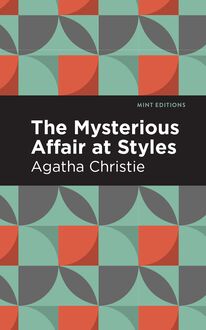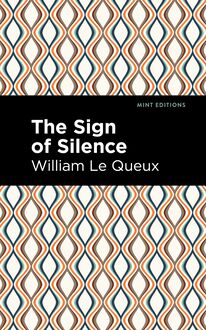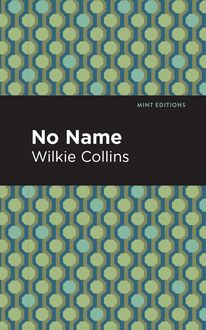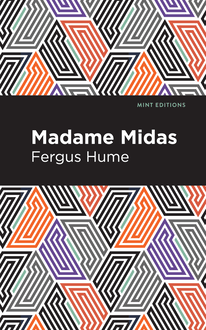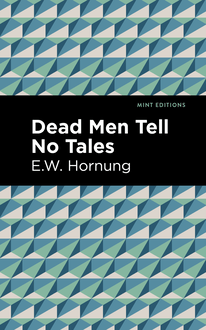-
 Univers
Univers
-
 Ebooks
Ebooks
-
 Livres audio
Livres audio
-
 Presse
Presse
-
 Podcasts
Podcasts
-
 BD
BD
-
 Documents
Documents
-
- Cours
- Révisions
- Ressources pédagogiques
- Sciences de l’éducation
- Manuels scolaires
- Langues
- Travaux de classe
- Annales de BEP
- Etudes supérieures
- Maternelle et primaire
- Fiches de lecture
- Orientation scolaire
- Méthodologie
- Corrigés de devoir
- Annales d’examens et concours
- Annales du bac
- Annales du brevet
- Rapports de stage
La lecture à portée de main
Vous pourrez modifier la taille du texte de cet ouvrage
Découvre YouScribe en t'inscrivant gratuitement
Je m'inscrisDécouvre YouScribe en t'inscrivant gratuitement
Je m'inscrisEn savoir plus
Vous pourrez modifier la taille du texte de cet ouvrage
En savoir plus

Description
Nine O’ Clock (1852) is a novel by Wilkie Collins. Written in the aftermath of Antonina (1850), his successful debut, Nine O’ Clock finds the author honing the trademark sense of mystery and psychological unease that would make him a household name around the world. Recognized as an important Victorian novelist and pioneer of detective fiction, Wilkie Collins was a writer with a gift for thoughtful entertainment, stories written for a popular audience that continue to resonate with scholars and readers today. At the height of the French Revolution, a group of prisoners awaiting execution is given the chance at one last night with friends and family. Elated, they feast and drink with their loved ones, exchanging stories of the past and even cracking jokes on the infamous guillotine, the very instrument of death they will face in the morning. Despite this general sense of hopeless joy, one man, Duprat, avoids the trend toward gallows humor, refusing to speak on the subject. Pressed by his friend Marginy, however, a change comes over Duprat, who begins to reveal a strange foresight of his own impending doom. Beyond its sensational plot, Nine O’ Clock is a masterpiece of Gothic horror and mystery for seasoned readers of Victorian fiction and newcomers alike. With a beautifully designed cover and professionally typeset manuscript, this edition of Wilkie Collins’ Nine O’ Clock is a classic work of English literature reimagined for modern readers.
Sujets
Informations
| Publié par | Mint Editions |
| Date de parution | 21 mai 2021 |
| Nombre de lectures | 0 |
| EAN13 | 9781513287225 |
| Langue | English |
| Poids de l'ouvrage | 2 Mo |
Informations légales : prix de location à la page 0,0250€. Cette information est donnée uniquement à titre indicatif conformément à la législation en vigueur.
Extrait
Nine O’Clock
Wilkie Collins
Nine O’Clock was first published in 1852.
This edition published by Mint Editions 2021.
ISBN 9781513282206 | E-ISBN 9781513287225
Published by Mint Editions®
minteditionbooks.com
Publishing Director: Jennifer Newens
Design & Production: Rachel Lopez Metzger
Project Manager: Micaela Clark
Typesetting: Westchester Publishing Services
C ONTENTS Begin Reading
The night of the 30th of June, 1793, is memorable in the prison annals of Paris, as the last night in confinement of the leaders of the famous Girondin party in the first French revolution. On the morning of the 31st, the twenty-one deputies who represented the department of the Gironde, were guillotined to make way for Robespierre and the Reign of Terror.
With these men fell the last revolutionists of that period who shrank from founding a republic on massacre; who recoiled from substituting for a monarchy of corruption, a monarchy of bloodshed. The elements of their defeat lay as much in themselves, as in the events of their time. They were not, as a party, true to their own convictions; they temporized; they fatally attempted to take a middle course amid the terrible emergencies of a terrible epoch, and they fell—fell before worse men, because those men were in earnest.
Condemned to die, the Girondins submitted nobly to their fate; their great glory was the glory of their deaths. The speech of one of them on hearing his sentence pronounced, was a prophecy of the future, fulfilled to the letter.
“ I die,” he said to the Jacobin judges, the creatures of Robespierre, who tried him. “ I die at a time when the people have lost their reason; you will die on the day when they recover it.” Valaz é was the only member of the condemned party who displayed a momentary weakness; he stabbed himself on hearing his sentence pronounced. But the blow was not mortal—he died on the scaffold, and died bravely with the rest.
On the night of the 30th the Girondins held their famous banquet in the prison; celebrated, with the ferocious stoicism of the time, their last social meeting before the morning on which they were to die. Other men, besides the twenty-one, were present at this supper of the condemned. They were prisoners who held Girondin opinions, but whose names were not illustrious enough for history to preserve. Though sentenced to confinement they were not sentenced to death. Some of their number, who had protested most boldly against the condemnation of the deputies, were ordered to witness the execution on the morrow, as a timely example to terrify them into submission. More than this, Robespierre and his colleagues did not, as yet, venture to attempt: the Reign of Terror was a cautious reign at starting.
The supper-table of the prison was spread; the guests, twenty-one of their number stamped already with the seal of death, were congregated at the last Girondin banquet; toast followed toast; the Marseillaise was sung; the desperate triumph of the feast was rising fast to its climax, when a new and ominous subject of conversation was started at the lower end of the table, and spread electrically, almost in a moment, to the top.
This subject (by whom originated no one knew) was simply a question as to the hour in the morning at which the execution was to take place. Every one of the prisoners appeared to be in ignorance on this point; and the gaolers either could not, or would not, enlighten them. Until the cart for the condemned rolled into the prison-yard, not one of the Girondins could tell whether he was to be called out to the guillotine soon after sunrise, or not till near noon.
This uncertainty was made a topic for discussion, or for jesting on all sides. It was eagerly seized on as a pretext for raising to the highest pitch the ghastly animation and hilarity of the evening. In some quarters, the recognised hour of former executions was quoted as precedent sure to be followed by the executioners of the morrow; in others, it was asserted that Robespierre and his party would purposely depart from established customs in this, as in previous instances.
-
 Univers
Univers
-
 Ebooks
Ebooks
-
 Livres audio
Livres audio
-
 Presse
Presse
-
 Podcasts
Podcasts
-
 BD
BD
-
 Documents
Documents
-
Jeunesse
-
Littérature
-
Ressources professionnelles
-
Santé et bien-être
-
Savoirs
-
Education
-
Loisirs et hobbies
-
Art, musique et cinéma
-
Actualité et débat de société
-
Jeunesse
-
Littérature
-
Ressources professionnelles
-
Santé et bien-être
-
Savoirs
-
Education
-
Loisirs et hobbies
-
Art, musique et cinéma
-
Actualité et débat de société
-
Actualités
-
Lifestyle
-
Presse jeunesse
-
Presse professionnelle
-
Pratique
-
Presse sportive
-
Presse internationale
-
Culture & Médias
-
Action et Aventures
-
Science-fiction et Fantasy
-
Société
-
Jeunesse
-
Littérature
-
Ressources professionnelles
-
Santé et bien-être
-
Savoirs
-
Education
-
Loisirs et hobbies
-
Art, musique et cinéma
-
Actualité et débat de société
- Cours
- Révisions
- Ressources pédagogiques
- Sciences de l’éducation
- Manuels scolaires
- Langues
- Travaux de classe
- Annales de BEP
- Etudes supérieures
- Maternelle et primaire
- Fiches de lecture
- Orientation scolaire
- Méthodologie
- Corrigés de devoir
- Annales d’examens et concours
- Annales du bac
- Annales du brevet
- Rapports de stage


